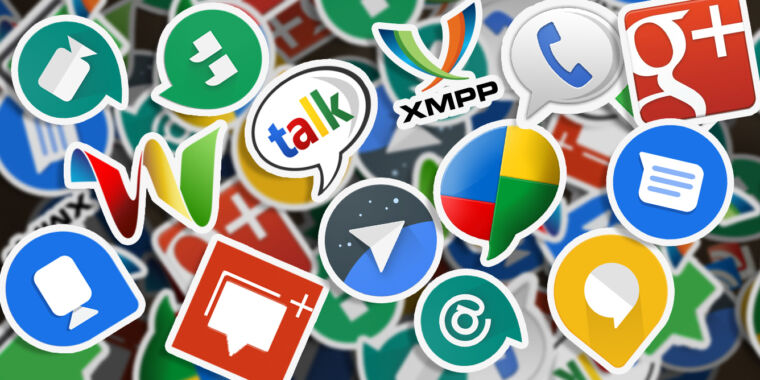Google's 16 years of messenger wheel-spinning has allowed products from more focused companies to pass it by. Embarrassingly, nearly all of these products are much younger than Google's messaging efforts. Consider competitors like WhatsApp (12 years old), Facebook Messenger (nine years old), iMessage (nine years old), and Slack (eight years old)—Google Talk even had video chat four years before Zoom was a thing.
Currently, you would probably rank Google's offerings behind every other big-tech competitor. A lack of any kind of top-down messaging leadership at Google has led to a decade and a half of messaging purgatory, with Google both unable to leave the space altogether and unable to commit to a single product. While companies like Facebook and Salesforce invest tens of billions of dollars into a lone messaging app, Google seems content only to spin up an innumerable number of under-funded, unstable side projects led by job-hopping project managers.
Because no single company has ever failed at something this badly, for this long, with this many different products (and because it has barely been a month since the rollout of Google Chat), the time has come to outline the history of Google messaging. Prepare yourselves, dear readers, for a non-stop rollercoaster of new product launches, neglected established products, unexpected shut-downs, and legions of confused, frustrated, and exiled users.
In the beginning, there was Google Talk, and things were good...
See
A decade and a half of instability: The history of Google messaging apps#
technology #
Google #
messengers
Sixteen years after the launch of Google Talk, Google messaging is still a mess.